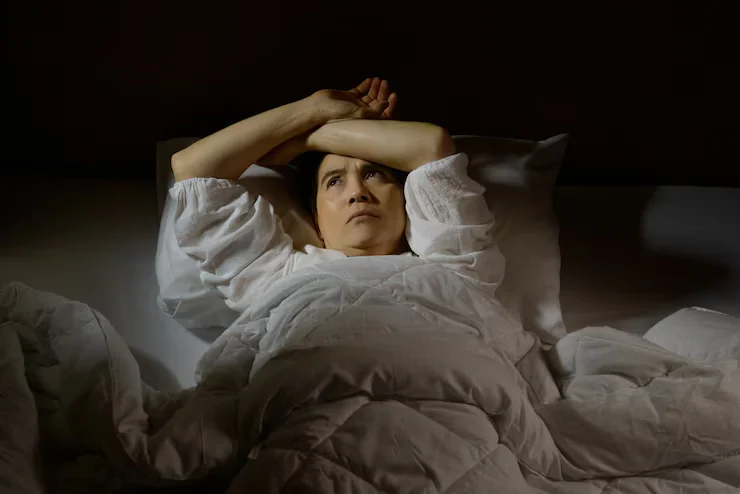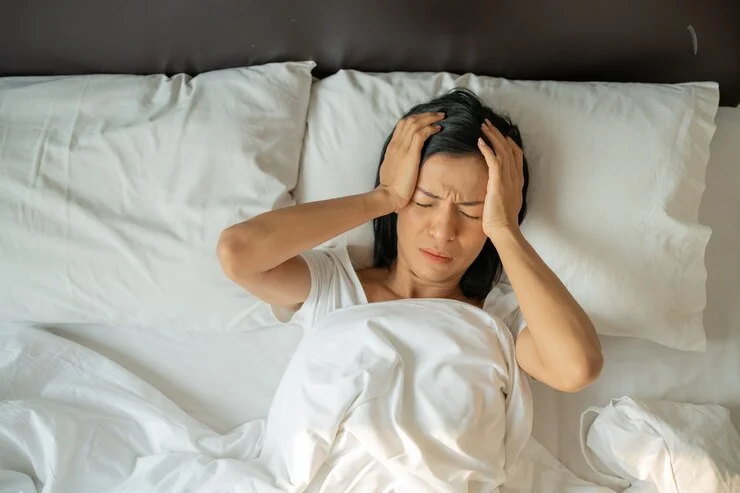-
129, Block-A Bangur Avenue, Mousumi Appartment, Kolkata 700055
129, Block-A Bangur Avenue, Mousumi Appartment, Kolkata 700055

Sleep for Mental Health is crucial for emotional well-being. Learn how sleep impacts your brain, emotions, and stress levels, plus expert-backed ways to improve it.
Have you ever ever found yourself feeling demanding, moody, or mentally exhausted after a night of negative sleep? It’s now not just your imagination—sleep and mental fitness are deeply linked. Sleep is important for emotional law, cognitive function, and usual well-being. yet, in today’s fast-paced, era-driven world, many humans struggle with sleep deprivation, frequently ignoring its psychological effects.
Studies have shown that chronic sleep deprivation increases the risk of anxiety, depression, and even severe mental disorders. Poor sleep not only affects your mood but also impairs decision-making, concentration, and memory. If left unaddressed, sleep disturbances can significantly impact your mental health, leading to a vicious cycle of stress and exhaustion.

In this blog, we will explore the scientific link between sleep and mental health, how sleep deprivation affects the brain, and practical steps to improve sleep for mental health.
A good night’s sleep isn’t just about feeling refreshed—it’s about allowing the brain to process emotions, repair neural pathways, and regulate stress hormones. When sleep quality declines, so does mental well-being.
The brain undergoes several critical processes while we sleep:
When sleep is disrupted, the brain struggles to function properly, leading to:
Over time, chronic sleep issues may contribute to serious mental health conditions, including depression, anxiety disorders, and even bipolar disorder.
Tension and sleep troubles frequently cross hand in hand. When you don’t get enough sleep, the brain’s amygdala (responsible for fear responses) becomes hyperactive, leading to increased stress and worry. Research shows that even a single night of poor sleep can heighten feelings of anxiety.
Ever noticed how small problems seem overwhelming when you’re tired? That’s because sleep helps regulate emotions. Poor sleep can make it difficult to manage frustration, leading to increased stress and even conflicts in personal and professional relationships.
Stress and sleep deprivation create a harmful cycle:
Breaking this cycle is crucial to maintaining a healthy mind and body.

A full sleep cycle consists of four key stages, each playing a vital role in maintaining psychological well-being:
Disruptions in these stages can lead to mental fog, heightened stress, and emotional instability.
Improving sleep quality isn’t just about sleeping more—it’s about adopting habits that support restful, uninterrupted sleep. Here are practical steps to enhance sleep for mental health:
If you want to know more about How to Talk About Mental Health? then you can visit here
If sleep disturbances persist despite making lifestyle changes, it might be time to consult a professional. Sleep disorders such as insomnia, sleep apnea, and restless leg syndrome can worsen mental health conditions.
Experienced professionals, including the best psychological counselor, help individuals navigate sleep-related mental health challenges. Seeking support early can prevent long-term psychological distress and promote better emotional well-being.

Lack of sleep increases cortisol levels, making it harder to regulate stress and emotions, which can worsen anxiety symptoms.
Symptoms include mood swings, difficulty concentrating, irritability, excessive fatigue, and heightened emotional sensitivity.
Yes, consistent sleep patterns help stabilize serotonin levels, reducing symptoms of depression.
Following a bedtime routine, limiting screen exposure, and practicing relaxation techniques can help improve sleep onset.
Yes, cognitive behavioral therapy (CBT) for insomnia is a proven method to improve sleep and mental health.
Sleep plays a crucial role in maintaining emotional balance, cognitive function, and stress management. Poor sleep can lead to anxiety, depression, and reduced focus, affecting both personal and professional life.
By prioritizing sleep hygiene, making lifestyle adjustments, and seeking professional guidance when necessary, individuals can improve sleep for mental health and overall well-being.
If you or someone you know is struggling with sleep-related mental health challenges, professional guidance can make a significant difference. The best psychological counselor in Kolkata offers expert support to help individuals achieve better mental health through improved sleep quality.